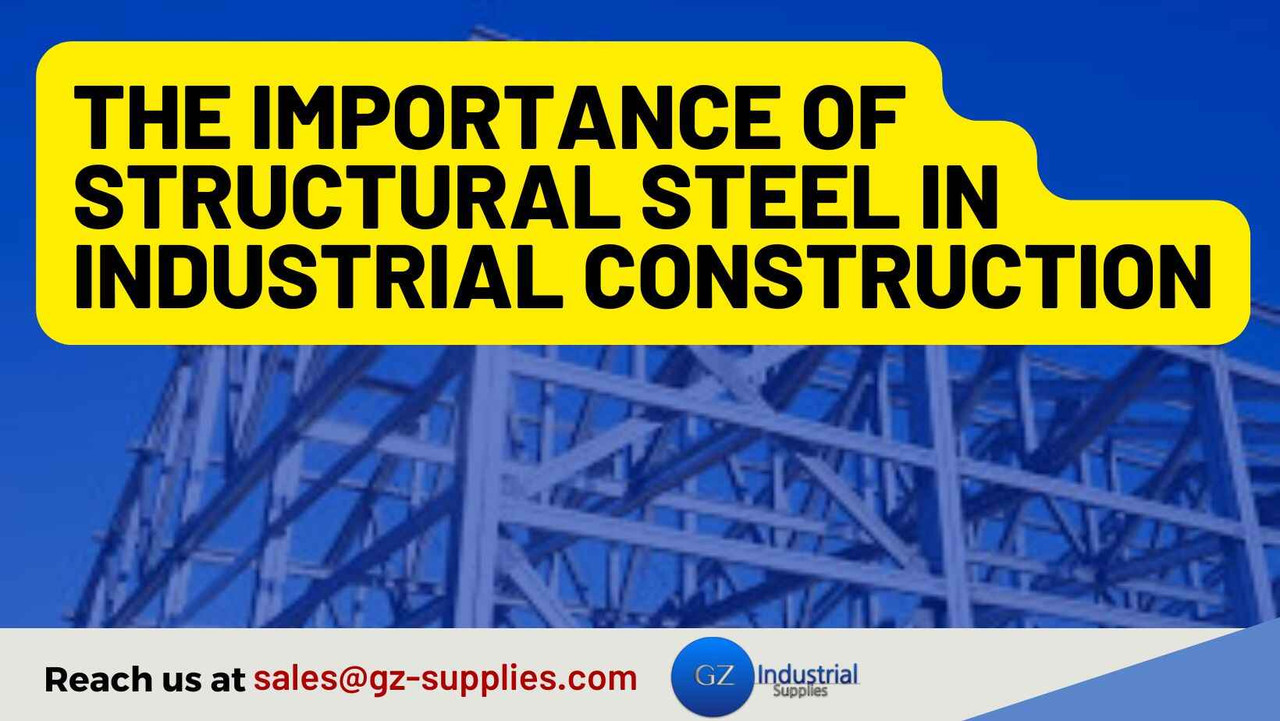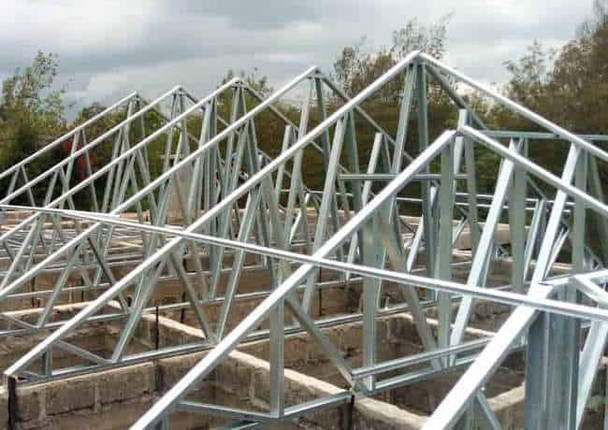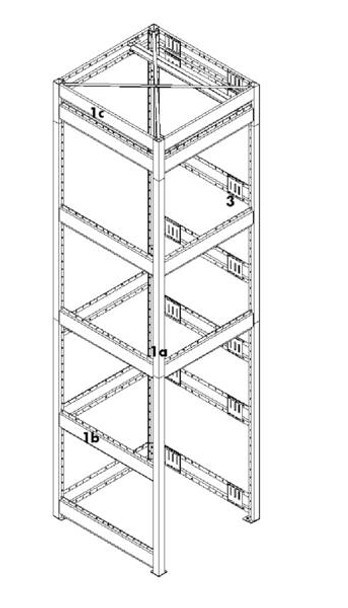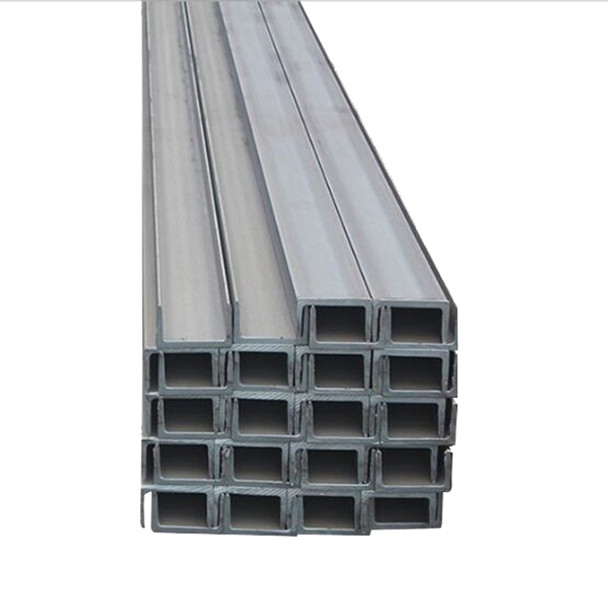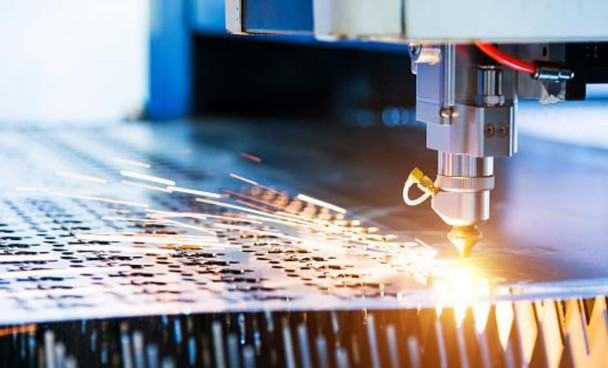The Importance of Structural Steel in Industrial Construction
Key Takeaway
- Strength and Durability: Structural steel provides exceptional strength, making it ideal for supporting heavy loads and ensuring long-term durability in industrial buildings.
- Versatility: Steel can be fabricated into a wide range of shapes and sizes, allowing for flexible design and adaptability in various industrial construction projects.
- Cost-Effective: Steel's recyclability, ease of installation, and low maintenance requirements contribute to its cost-efficiency in large-scale industrial construction.
- Safety and Sustainability: Structural steel offers high resistance to fire, seismic activity, and extreme weather, while also being an environmentally friendly material due to its recyclability.
Introduction
Structural steel plays a vital role in modern industrial construction. Its strength, durability, and adaptability have made it the material of choice for building large-scale industrial complexes, warehouses, bridges, and other critical infrastructure. Whether constructing towering high-rise buildings or supporting massive machinery, structural steel provides the framework that ensures stability and longevity. Its ability to handle extreme conditions and support heavy loads has made it indispensable in the industrial sector, offering long-term sustainability and cost-effectiveness.
Structural steel, like ASTM A36 and A992 steel, offers high tensile strength, making it ideal for withstanding the stresses of industrial operations and harsh environmental conditions. Its fire resistance and recyclability further enhance its value in construction. The precision with which steel beams, columns, and trusses can be fabricated ensures efficient assembly and cost savings. As a result, structural steel remains a cornerstone in modern industrial construction, supporting everything from factories to warehouses.
Structural Steel H-Beam Size 300x300 80Kg
Key Characteristics of Structural Steel
Structural steel stands out as a premier building material in industrial construction due to several key characteristics:
1. High Strength-to-Weight Ratio:
One of the most important features of structural steel is its exceptional strength relative to its weight. This high strength-to-weight ratio makes it ideal for industrial applications, where supporting heavy machinery and equipment is necessary. Steel can bear large loads without buckling or bending, enabling the construction of large spans and tall buildings without requiring overly heavy or cumbersome materials.
2. Durability and Longevity:
Structural steel is known for its resistance to wear and tear. It can withstand harsh environmental conditions, including exposure to chemicals, heavy moisture, and extreme temperatures. When treated properly with coatings or galvanization, steel is highly resistant to corrosion, which is crucial for industrial buildings exposed to outdoor elements or challenging operating environments. This durability ensures long service life with minimal degradation, reducing long-term maintenance costs.
3. Flexibility in Design:
Steel offers unparalleled flexibility when it comes to industrial design. It can be fabricated into different shapes and sizes to meet specific design requirements, allowing for custom solutions that match the operational needs of industries. Whether it’s open-plan warehouses with vast clear spans or intricate structures for specialized facilities, steel’s versatility ensures architects and engineers can tailor designs without compromising on strength.
4. Cost-Effectiveness:
While structural steel may have higher upfront costs compared to some other materials, its long-term cost-effectiveness is undeniable. Its durability, low maintenance requirements, and speed of construction lead to savings in the long run. Additionally, steel’s recyclability reduces waste and aligns with sustainable construction practices, which can also contribute to cost benefits.
Light gauge steel roof trusses for roofing
Applications of Structural Steel in Industrial Construction
Structural steel’s characteristics make it indispensable across a wide range of industrial construction applications. Here are some of the most common uses:
1. Factory and Warehouse Construction:
Factories and warehouses require large open spaces to accommodate machinery, storage, and production lines. Structural steel provides the necessary load-bearing strength to create these open spaces without the need for multiple support columns, maximizing the usable floor area. Its ability to support heavy roofs and handle the weight of suspended equipment or crane systems further enhances its suitability for industrial purposes.
2. Bridges and Infrastructure:
Structural steel is a go-to material for bridges and other infrastructure projects because of its ability to carry heavy loads over long spans. Industrial infrastructure such as conveyor systems, pipelines, and roadways depend on steel for its strength and reliability. Its resistance to weathering and flexibility in complex designs makes steel an optimal choice for industrial-grade bridges and large-scale transport systems.
3. High-Rise Industrial Buildings:
As industries expand, the need for vertical construction in industrial buildings has increased. Structural steel is the preferred choice for high-rise structures in industrial sectors due to its superior strength and ability to withstand wind and seismic forces. Steel frameworks allow for rapid construction of multi-story buildings while providing the stability and resilience necessary for housing heavy industrial operations.
4. Oil and Gas Industry:
Structural steel plays a crucial role in the oil and gas industry, particularly in the construction of rigs, refineries, and pipelines. The material's strength allows for the support of heavy equipment, while its resistance to corrosion ensures longevity in environments exposed to moisture, chemicals, and temperature extremes. Whether onshore or offshore, steel structures are essential for maintaining the safety and efficiency of oil and gas operations.
Pre-fabricated Lift Shaft
Advantages of Using Structural Steel in Industrial Projects
The advantages of structural steel in industrial construction go beyond its strength and durability. These benefits contribute to its widespread adoption in various industrial projects:
1. Speed of Construction: One of the key benefits of using structural steel is the speed at which projects can be completed. Steel components are often prefabricated off-site, which allows for quick assembly once delivered to the construction site. This reduces labor costs and shortens construction timelines, enabling industries to get their operations up and running faster. In environments where time is critical, such as expanding production facilities or building new infrastructure, this rapid construction process is a major advantage.
2. Sustainability: Structural steel is one of the most sustainable construction materials available. It is 100% recyclable, which means that at the end of a building’s life, the steel can be reused without any loss in strength or quality. This reduces the environmental impact of construction projects, making steel a more eco-friendly choice compared to other materials. Additionally, advancements in steel production techniques have significantly reduced the carbon footprint associated with manufacturing.
3. Low Maintenance: Once a steel structure is built, it requires very little maintenance over its lifetime. Unlike other materials that may degrade, rot, or require frequent repairs, steel structures remain largely unaffected by environmental factors. This low maintenance requirement is particularly beneficial in industrial settings, where uptime and operational efficiency are critical.
4. Earthquake and Wind Resistance: Structural steel offers superior resistance to natural forces like wind and earthquakes, making it ideal for industrial buildings located in regions prone to seismic activity or strong winds. Steel’s flexibility allows it to absorb and dissipate energy during seismic events, preventing catastrophic failures. This resilience provides an added layer of safety in industrial buildings, which often house valuable equipment and hazardous materials.
The Role of Structural Steel in Supporting Heavy Loads
One of the key reasons structural steel is essential in industrial construction is its ability to support extremely heavy loads. Industrial settings often involve the use of heavy machinery, large equipment, and storage of bulk materials, all of which require robust support systems. Here’s how structural steel performs under these conditions:
1. Load-Bearing Capacity: Steel frameworks can support significantly heavier loads than other construction materials like wood or concrete. In factories, steel columns, beams, and trusses ensure that the weight of heavy machines and production lines is evenly distributed. Steel’s high tensile strength makes it ideal for constructing large industrial plants, where load-bearing demands are substantial.
2. Resilience in Harsh Conditions: Industrial environments often expose structures to extreme conditions such as high temperatures, chemical exposure, and continuous vibrations from operating machinery. Steel’s resilience makes it the best option in these environments. It remains stable under high heat and doesn’t weaken over time, which is essential in industries like manufacturing, power generation, and oil and gas.
Structural channel steel 80x40 UPN(L) x6mm
Challenges and Considerations When Using Structural Steel
Despite its many advantages, there are some challenges and considerations when using structural steel in industrial construction. Proper planning and protective measures are necessary to ensure steel’s optimal performance, especially in demanding industrial settings.
1. Corrosion and Rust Prevention:
Steel is vulnerable to corrosion when exposed to moisture and certain chemicals, which is a common issue in industrial settings. To combat this, protective coatings such as galvanization or specialized paints are applied to prevent rusting. For environments where exposure to corrosive substances is high, regular maintenance is necessary to ensure the integrity of the steel structures.
2. Fireproofing:
While steel is non-combustible, it loses strength at extremely high temperatures, which can be a concern in the event of a fire. Fireproofing treatments such as intumescent coatings or encasing steel members in fire-resistant materials are common strategies to protect steel structures in industrial buildings. These methods provide critical extra time for evacuation and firefighting efforts in case of an emergency.
3. Initial Costs vs. Long-Term Value:
The initial cost of structural steel can be higher than other construction materials. However, the long-term benefits—such as reduced maintenance costs, durability, and recyclability—often outweigh the initial expenses. It’s important for industries to weigh the upfront investment against the lifespan and efficiency gains steel offers in terms of construction speed, durability, and adaptability.
Innovations in Structural Steel for Industrial Construction
The world of structural steel is constantly evolving, with new technologies and methods enhancing its applications in industrial construction. These innovations make steel even more attractive as a building material by increasing its sustainability, improving its performance, and offering new construction possibilities.
1. New Coatings and Treatments: Advances in protective coatings have greatly improved the longevity and durability of structural steel in industrial settings. Modern coatings can resist corrosion better and offer enhanced fire resistance, allowing steel to perform better in extreme environments. Technologies such as thermal spraying and advanced galvanization provide additional layers of protection that are more effective than traditional methods.
2. Sustainable Steel Production: Steel manufacturing is becoming more environmentally friendly, with new processes designed to reduce carbon emissions. Innovations like electric arc furnace (EAF) technology allow for recycling scrap steel into new products with a significantly lower carbon footprint. These methods not only make steel production more sustainable but also contribute to the overall eco-friendliness of the material in industrial construction.
3. Modular Steel Construction: Prefabrication is taking the construction industry by storm, and modular steel construction is at the forefront. By fabricating steel components off-site in controlled environments, construction timelines are shortened, and quality is improved. This is particularly useful in industrial settings where delays can be costly, and construction efficiency is paramount. Modular steel structures are easier to transport, assemble, and customize to meet specific industrial requirements.
Laser cut metal sheets
Frequently Asked Questions
1. Why is structural steel preferred in industrial construction?
Structural steel is preferred due to its high strength-to-weight ratio, durability, flexibility in design, and cost-effectiveness. It is ideal for supporting heavy loads and withstanding harsh industrial conditions.
2. How does structural steel handle corrosion in industrial settings?
Structural steel can be treated with protective coatings such as galvanization or special paints to prevent corrosion. Regular maintenance and protective measures are necessary in highly corrosive environments.
3. Can steel structures resist fire in industrial buildings?
While steel is non-combustible, it loses strength at high temperatures. To protect steel structures from fire damage, fireproof coatings or encasing methods are used, giving extra time for evacuation and firefighting efforts.
4. Is structural steel environmentally friendly?
Yes, structural steel is highly sustainable as it is 100% recyclable. Advances in steel production, such as using electric arc furnaces, further reduce the environmental impact by lowering carbon emissions.
5. What is modular steel construction, and how does it benefit industrial projects?
Modular steel construction involves prefabricating steel components off-site, allowing for faster assembly and improved quality control. This method speeds up construction timelines, reduces labor costs, and is highly adaptable for industrial needs.
Readers Also Watched...
Related Articles
What Types of Structural Steel are Used in Building Construction in Nigeria?
How to Choose the Right Structural Steel Material for Your Project
The Uses of Structural Steel in Construction and Manufacturing
Conclusion
Structural steel remains a cornerstone of industrial construction due to its unparalleled strength, durability, and flexibility. From supporting massive machinery to allowing the construction of expansive, open spaces, steel provides the foundation for modern industrial projects. Its ability to handle harsh environments, resist wear and tear, and be fabricated into virtually any design makes it an essential material for industries across the globe. Though the initial costs may be higher, the long-term benefits—including reduced maintenance, faster construction times, and environmental sustainability—make structural steel a wise investment for any industrial project.
By embracing the innovations in steel technology, industries can build safer, more resilient, and more sustainable infrastructure that meets the demands of the future.
For premium-quality structural steel and industrial construction materials, visitGZ Industrial Supplies. Our range of structural steel products is built to meet the toughest industrial demands, ensuring durability, safety, and efficiency. Explore our offerings and take your industrial project to the next level with GZ Industrial Supplies!

